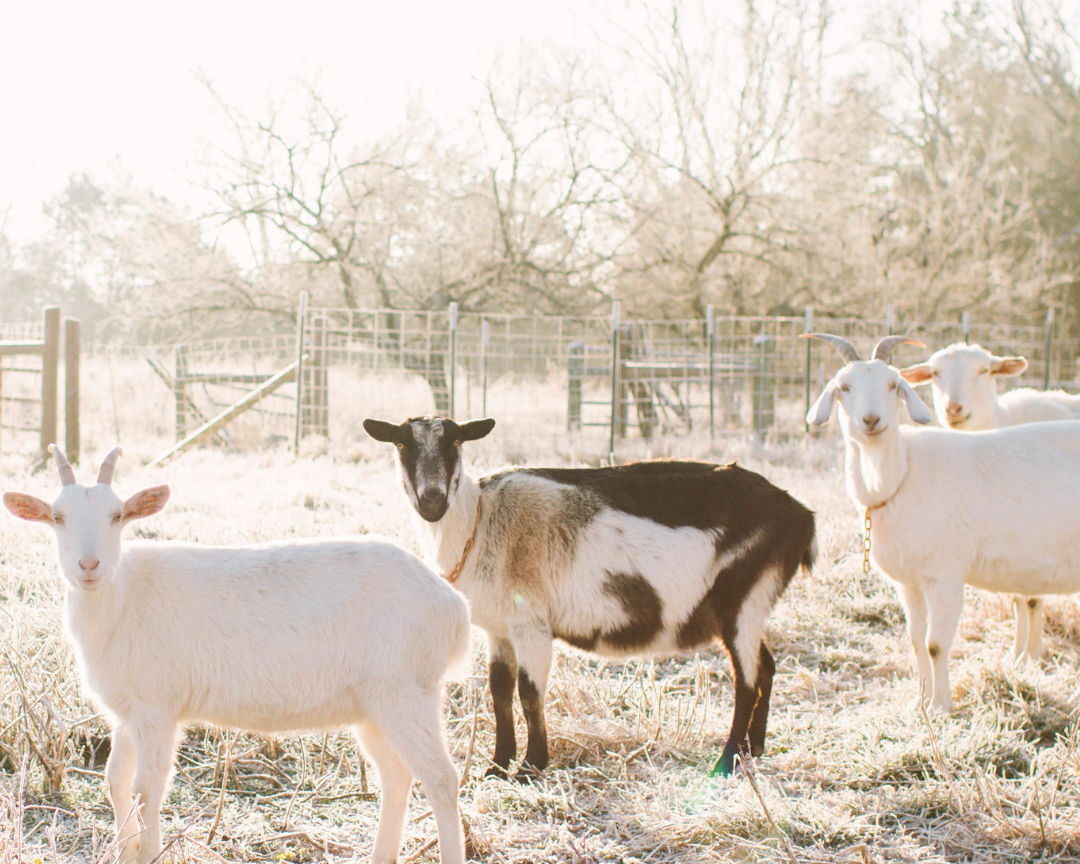

Some days, staying wrapped in blankets and streaming your favorite show feels like the best plan. We’ve been there, and honestly, a cozy afternoon indoors is sometimes exactly what we need. But even when the world is covered in snow, stepping outside for just a moment can reset your mood, support your health, and leave you feeling more energized than you might expect!
When James and I moved from NYC to the farm, avoiding the elements wasn't an option. Farming means being outside every day - heat dome, rain, snow, or sleet. While there were moments when returning to a climate controlled office job was tempting, regular time outside - and the mood and energy boosts that came from it - quickly became one of my favorite farming perks.
Beyond a change of scenery, getting outdoors has a whole list of amazing benefits like helping regulate your circadian rhythm (your internal clock that affects how you sleep, your energy levels, and hormone production), reducing stress, improving your mood, and even boosting your immune system. And - it costs nothing (other than a little courage and time).
While sometimes the last thing you want to do is bundle up and brave the cold, we think our list of proven benefits might inspire you to give it a go!
Let's break it down:
1. Better Sleep & Balanced Mood:
Stepping into the daylight, even on a gray winter morning, helps tune your body’s internal clock. Research has shown that light exposure in the morning improves sleep quality and mood by reinforcing healthy circadian rhythms (National Institutes of Health, 2020). A short morning walk, even when it’s chilly, can lead to more restful sleep and a calmer frame of mind.
2. Lowered Stress & Improved Immune Health:
Studies have linked time spent outdoors to reduced stress levels, improved mental well-being, and even a stronger immune system. A 2021 study in Frontiers in Psychology found that just 20 minutes outside can significantly lower cortisol (the stress hormone). Time in nature is also associated with increased production of natural killer cells, which play a role in immune defense (Environmental Health and Preventive Medicine, 2018).
3. Greater Self-Kindness Inspired By Nature's Cycles:
Winter’s stillness mirrors the quieter phases of life, reminding us that slowing down is part of growth. Spending time outside, even briefly, reconnects you with nature’s gentle rhythms and encourages patience with your own cycles of rest and renewal. A study in Ecopsychology found that being in nature can foster self-compassion, helping you treat yourself with the same care you extend to others.
4. Natural Nervous System Regulation:
Feeling the cold air on your skin, the winter sun on your face, or even touching the bare earth through a gloved hand are subtle ways your body interfaces with the elements. This sensory connection to nature helps regulate your nervous system, reducing stress and encouraging mindfulness. A 2020 review in International Journal of Environmental Research and Public Health highlights how nature exposure can enhance parasympathetic nervous system activity, promoting relaxation and emotional balance.
5. Natural Energy Boost:
Certain outdoor environments, like open fields, snowy trails, or even a quiet neighborhood street, act like a natural energy shot. The cold, crisp air wakes up your senses, sunlight (even minimal) lifts your mood, and just by moving your body outdoors, you can help shake off that sluggish feeling. A study published in The Journal of Environmental Psychology (2019) found that people who spent just 10 minutes in nature reported feeling more awake and energized.
Not sure where to start? Try these easy ways to get outside:
- Start your day with a 10-minute sunrise stroll, letting the gentle daylight perk you up naturally.
- Turn weekend errands into a quick outdoor break! Park a little farther away or take a short walk before diving back into chores.
- Invite a friend or family member for a chatty walk. Conversation can turn frosty air into something enjoyable and fun.
- Experiment with a brief forest bathing session. You don’t need to live near a dense forest to do this—even just a cluster of trees in the park can provide the same benefits. Pay attention to sounds, textures, and scents.
What’s good for your body tends to be good for the planet too. When we spend more time outdoors and align with the seasons, it feels like we’re not just caring for ourselves - we’re connecting with something bigger. That connection can ripple out, inspiring care for the land and the people around us.
When you’re being called to hibernate, remember the benefits that are waiting for you just outside your door. Even a short outing can help regulate your sleep, lower stress, boost your mood, and strengthen your connection to the world around you.
So why not bundle up, take a breath, and step outside? Your body, mind, and spirit will thank you.

